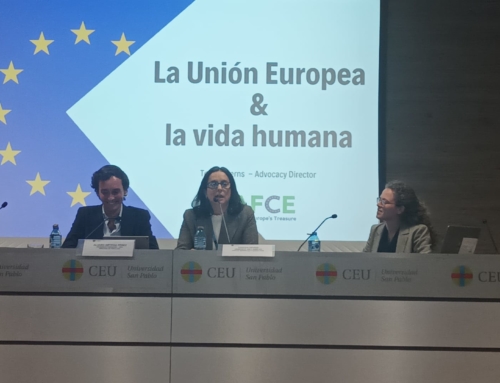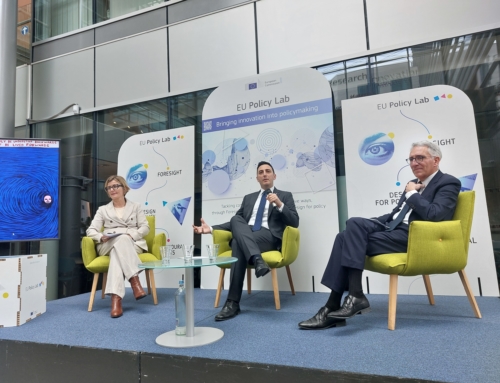Brussels, 12th November 2024
The following is a translated interview with Vincenzo Bassi, President of FAFCE, published by L’Osservatore Romano on 11th November 2024. The interview was conducted in Italian by Federico Piana.
“Correcting Europe’s Perspective to Combat the Demographic Winter”
The viewpoint of Brussels’ institutions on the severe birth rate crisis affecting Europe needs to be corrected and rebalanced. This is the core message Vincenzo Bassi has been emphasizing for some time, which gained more traction in recent weeks when the Draghi Report on competitiveness, commissioned by the President of the European Commission, Ursula von der Leyen, shed light on the continent’s demographic winter but only addressed the issue from the perspective of productivity. Bassi, President of FAFCE (Federation of Catholic Family Associations in Europe), fears this will remain the sole interpretative model of a scenario that, by 2050, according to the most optimistic estimates, will see the European population aged 20 to 64 drop to around 406 million from 451 million in 2022, with a consistently declining trend year after year.
Bassi, a lawyer and expert in European and international law as well as fiscal and corporate issues, persistently argues that viewing the dramatic decline in birth rates solely through the lens of productivity “does not allow the European Union to achieve one of its objectives: to secure social cohesion by ensuring an intergenerational balance conducive to genuine sustainable development.” Without new generations, he explains to L’Osservatore Romano, productivity itself becomes impossible: “Therefore, to increase productivity, focusing solely on professional training is insufficient. Human capital must embody a set of values that need renewal. To achieve this, we must invest in future generations. Without a recovery in birth rates, even workers will face drastic sacrifices, such as wage reductions.”
In response to a European vision that risks viewing society as merely a group of consumers within an economic dynamic, Bassi contrasts the thinking of the founding fathers of Europe: “For them, the human person was not just a consumer or producer. Now, there is a risk that this significant aspect could become all-encompassing. If we left it solely to the EU to define the person, we would risk a highly limited, partial definition.” FAFCE entrusts communities, families, and localities with the role of understanding the full function of the individual within their contexts. The EU should continue, as it rightly does, to focus on the economic and productive aspects of individuals.
For Bassi, reversing the trend of empty cradles requires a paradigm shift. In fact, it is by refining this restrictive perspective that better policies to support birth rates could be devised. Additionally, Europe should consider one of FAFCE’s key concerns: “Demographic policies today are seen as costs, but this view should be reversed, considering them as true investments during times of crisis.” Yet, this alone is not enough: “There are many truths, each important. Discussions aimed at understanding and countering our prolonged demographic winter should also include reflections on the role of the family, loneliness, and the education of our youth, who should not be regarded only as individuals focused on professional and work-related growth. Today, an integrated vision of the person is lacking.”
The reduction of humans to economic consumers within an individualistic society leads Bassi to assert that the solitude faced by families is the primary issue to be addressed if we are to see full cradles once more: “A family on its own is extremely fragile. Families that network, however, resemble the villages of our grandparents, where a child’s birth was a celebration for everyone, a gift to the entire community. In these settings, loneliness fades, and there is greater courage to have children.”







